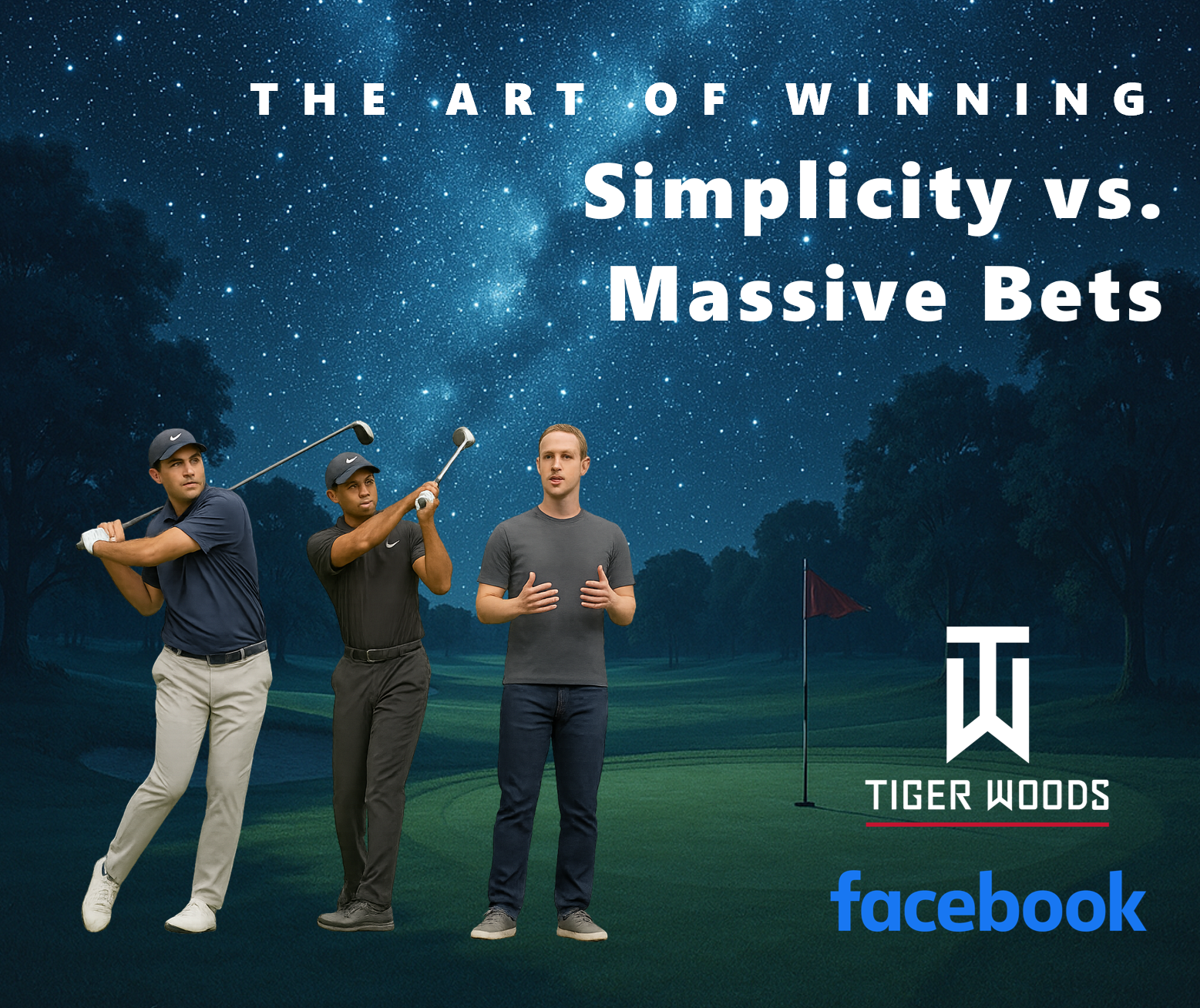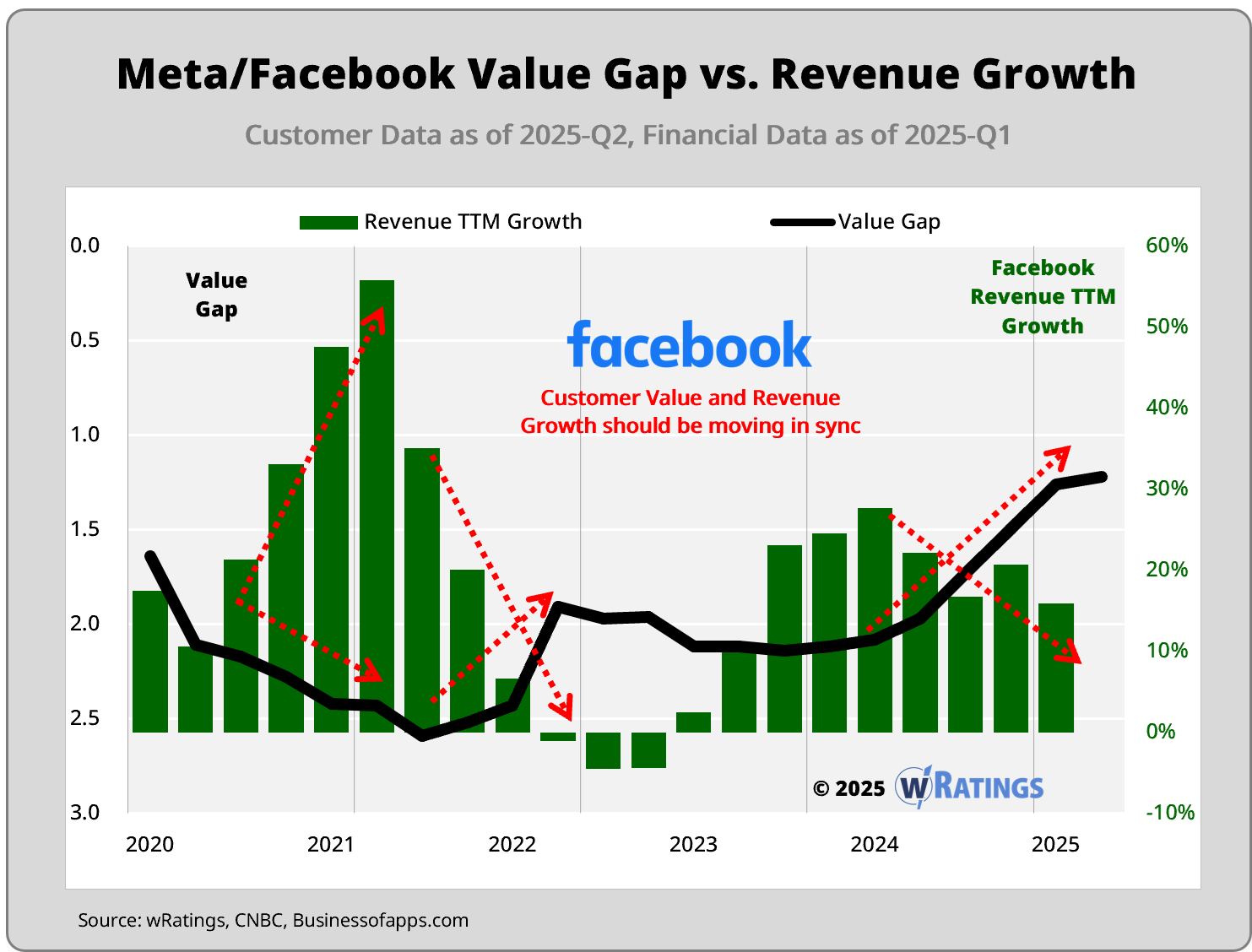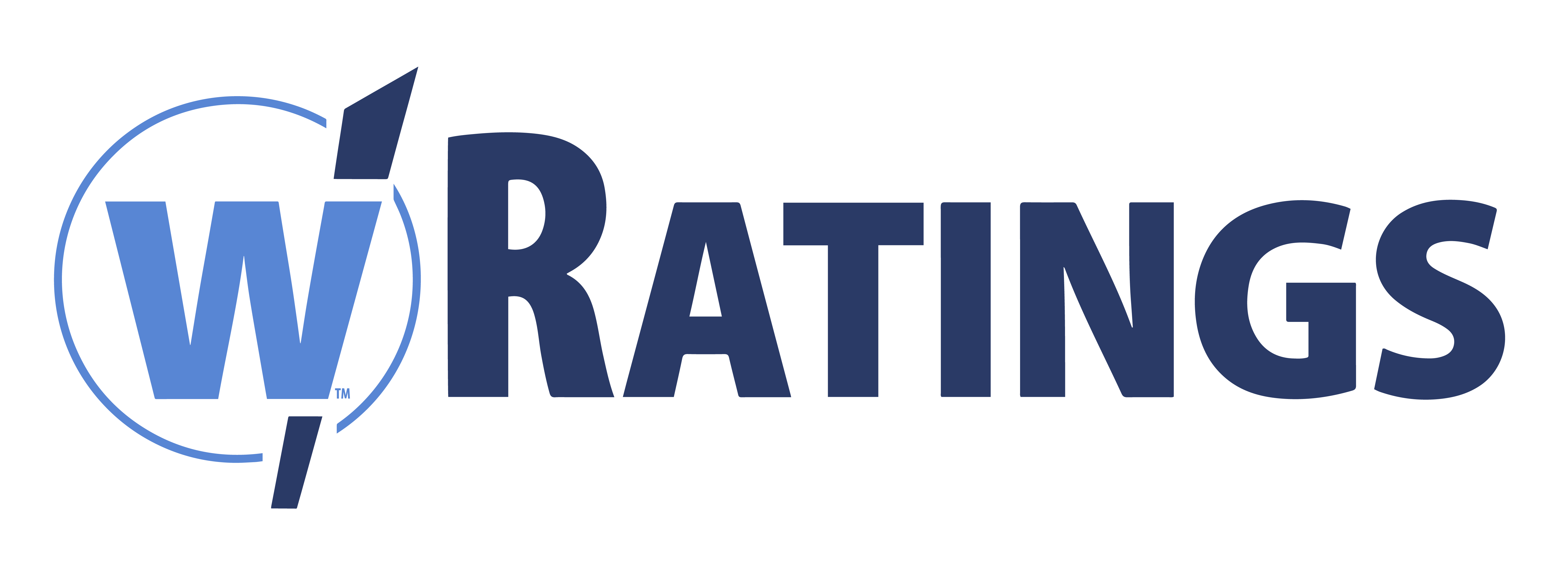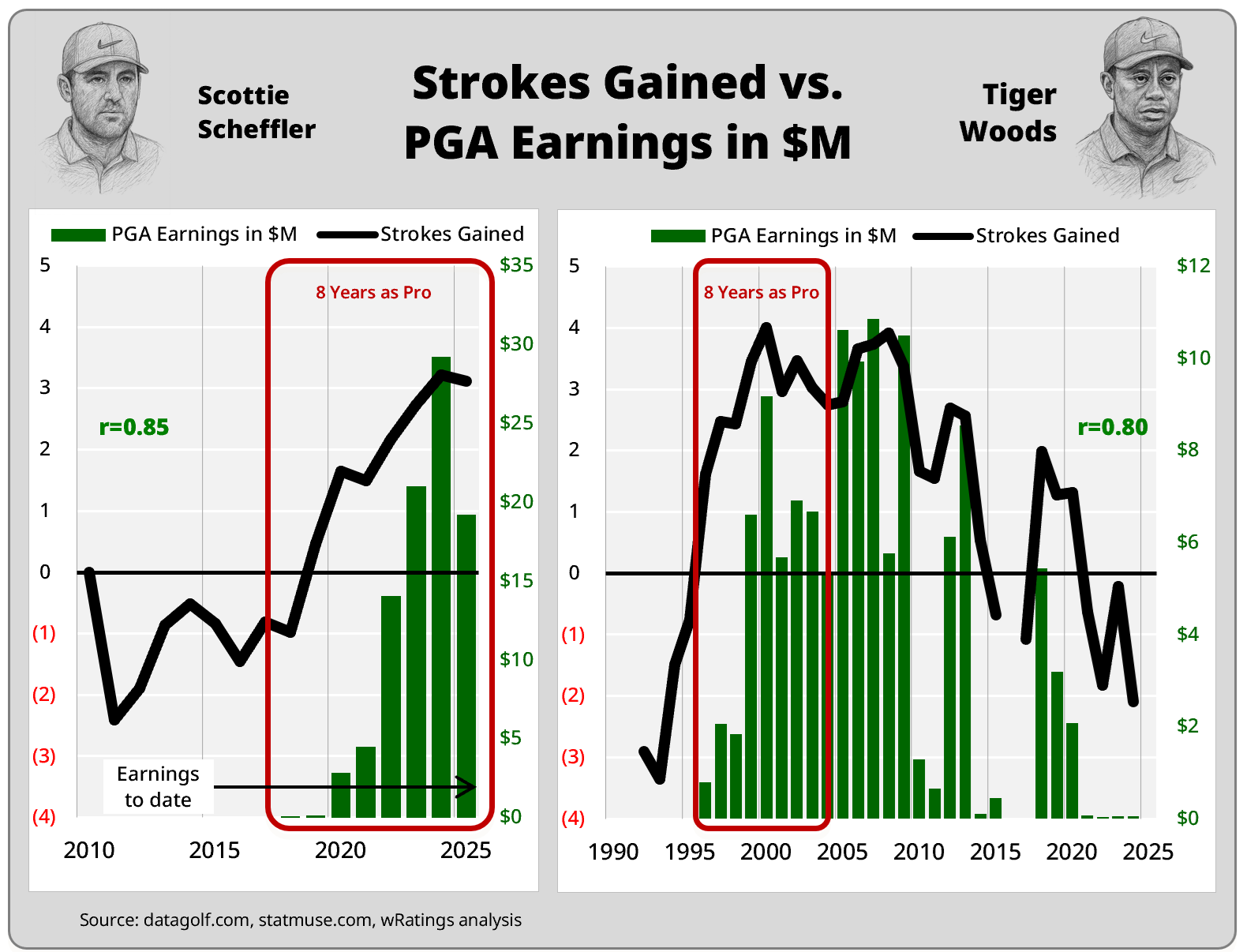Strokes of Genuis: Scottie Scheffler, Tiger Woods vs. Mark Zuckerburg
Gary A Williams
July 21, 2025
Strokes of Genuis: Scottie Scheffler, Tiger Woods vs. Mark Zuckerburg

All trademarks are properties of their respective owners.
Even before Scottie Scheffler banged out his fourth major win in Northern Ireland at the Open Championship yesterday, the comparisons began. Is he as good as Tiger?
Jumping to the business world this past week and the biggest CEO news happened at a Coldplay concert. Let’s just skip that. But another already famous CEO made big news as well: Meta (NASDAQ: Meta) CEO Mark Zuckerburg is offering massive compensation packages – some as high as $300 million – to attract top AI talent to his company.
Most would agree that Scottie, Tiger, and Zuck are geniuses at what they do. A closer look at their trajectories reveals some similarities, as well as some differences that may indicate if good fortune is likely to continue or not. Comparing their first 8 years as professional golfers, Scottie has a similar trajectory to Tiger in both strokes gained and PGA earnings.
But looking at Meta/Facebook since 2020, and a different story emerges. One that fully explains why Mark is willing to pay “astronomical” money for the AI “stars” (Coldplay pun intended).
Digging into the data underneath their trajectories tells us whether their growth has been healthy or not. During the win streaks, did performance improve as well, or was it just momentary?
In business, companies sometimes wonder why their Net Promoter Score® decreases even though their revenue increases. Or worse yet, vice versa. When this happens, trouble could be on the horizon.
How Scheffler Wins: Simplicity
Earlier in the week, Scottie made the news for his comments off the golf course. He had a rather blunt answer to the media about winning: “You work your whole life to celebrate winning a tournament for like a few minutes. It only lasts a few minutes, that kind of euphoric feeling.”
The worlds #1 golfer doesn’t care about winning, although he certainly doesn’t want to lose either. In that interview, Scottie brought up a startling statistic that tennis great Roger Federer said while speaking at the Dartmouth College graduation: Roger had only won 54 percent of all the points he had played during his career, just more than half. Said another way, he loses 46 percent of his points.
Being a perennial winner doesn’t require massive domination – it requires attention and consistency to the details of how you perform. Scottie’s performance data shows just how dominant he has become, exhibiting a strong correlation (r=0.85) with his PGA earnings through 2024 and matching Tiger’s performance during his first 8 years as a pro in terms of strokes gained.
Because losing is a part of sports and life, elite athletes (and executives) find a way to prioritize the right things. During his climb from amateur to pro, Scottie has changed his grip just twice: Once when he was 13 and once when he was in college.
Scottie was born in 1996 (which is ironically the same year that Tiger Woods turned pro), which means he changed his grip in 2009 and then again after 2015 while at the University of Texas (at Austin). Looking at his Stroked Gained each year (see chart), his SG Total went down and then improved to where it is today.
Tiger has changed his grip multiple times in 2000, 2004, 2010, and 2019 in an effort to improve his game. Only the 2000 change caused a decrease in his strokes gained.
Scottie’s been incredibly consistent over time with his attention to detail and continually improving all the areas of his game by keeping things simple. That Grand Slam looks like a near certainty, barring any injuries.
Yet, look at Meta/Facebook’s performance, and the future looks unpredictable.
How Zuckerberg Wins: Massive Bets
No CEO wants to be forced into offering recruits $300 million compensation packages. Yet, that is exactly where Meta CEO Mark Zuckerburg finds himself today.
Looking at Meta/Facebook’s customer value and growth chart, Mark’s challenge is revealed. His customer value equation is out of whack. When customers are seeing more value being delivered, growth is slowing. When growth is occurring, customers feel the company is delivering less value.
Some CEOs see this occur as well in their growth and NPS, often leaving them wondering what is happening and how to fix it. The value data underneath tells the full story, but we need to start a bit further back in the Meta story.
In the Netflix documentary “The Social Dilemma,” one of the most chilling quotes comes from Daniel Hövermann, “If you’re not paying for the product, then you are the product.” Facebook and Instagram users are the product.
The company is built on a classic network effect moat, where the value of the offering increases as more members join the community. Challenges arise when users start feeling captive rather than vested in the community.
Looking at the value gap & revenue growth chart, growth at Meta/Facebook is correlating (r=0.40) when customer value is decreasing, and vice versa since 2020. This is the exact opposite of what one would expect financially. Other Magnificent 7 stocks like Google and Microsoft possess a stronger correlation in the desired direction (r=-0.51 and r=-0.55, respectively).

Network effects don’t last forever – just ask Montgomery Ward or Sears (mail order catalogs), AOL, Blackberry, Friendster, Napster, MySpace or Yellow Cab. Unless Facebook and Instagram improve their products, users will abandon them in favor of the next big thing.
That’s why Mark Zuckerburg needs AI so badly, and he’s poaching AI stars from any company he wants with his mega deals, impacting the talent balance in Silicon Valley and beyond.
Unlike how Scottie Scheffler and Tiger Woods climbed the PGA earnings hill through hard work and consistently improving their game in strokes gained, Meta/Facebook is struggling to deliver value to its customers.
In the most recent data (2025-Q2) for our W-30 Index of companies, Facebook ranks #30 out of 30 in its ability to meet customer expectations. Dead last. Boeing, whose jets have crashed killing hundreds of people, sits above them at #29.
The reset is on for Meta/Facebook. They need it to jumpstart the process off to consistently deliver customer value and grow their revenues.
Considering all the data, Mark Zuckerburg’s massive bet on AI talent makes sense.
Restart your Revenue Growth Process
Let the wRatings platform analyze the value your company is creating for customers today.
You will be able to clearly see their expectations, your company performance versus key rivals, and how much more customers are willing to pay so you can grow revenues and margins today.
Don’t wait. Apply to become a wRatings Insider today.



